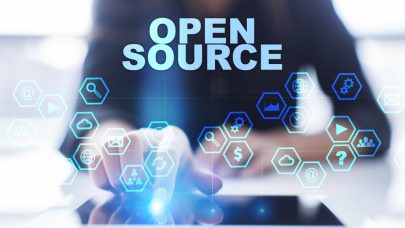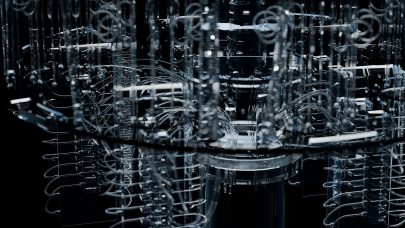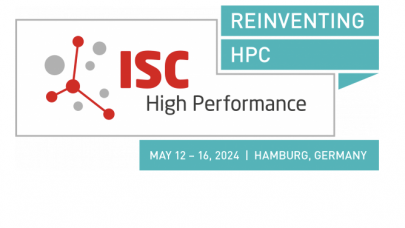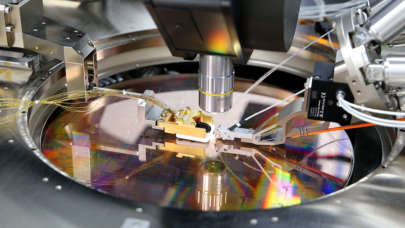There’s been flurry of significant news in the quantum computing world. Yesterday, Rigetti introduced a new family of gates that reduces circuit depth required on some problems and D-Wave struck a deal with NEC to collaborate on hybrid classical-quantum computing. On Monday Intel debuted new quantum system components. Last week AWS unveiled a three-prong quantum initiative, something many had been expecting, that among other things provides a central portal for quantum users to access quantum computing resources from Rigetti, IonQ, and D-Wave – expect more companies to follow.
Let’s start with Rigetti. A central problem in QC today is taming error rates on the current generation of so-called noisy intermediate scale (NISQ) quantum computers. Rigetti engineer Deanna Abrams described the problem nicely in a Rigetti blog:
“Near term quantum computers offer the possibility of solving useful real-world problems on qubits whose gate fidelities are still below error-correcting thresholds. The algorithms being developed to solve these real-world problems are often limited by circuit depth, which refers to the number of gates you can perform on your qubits before the outcome is dominated by noise.
“This problem can be tackled from two directions; either by decreasing the error of each gate operation or by decreasing the number of gates needed to enact any given algorithm. Today we’re introducing a new family of gates on our Quantum Cloud Services platform that enable dramatic decreases in gate count for near-term hybrid algorithms.”
Abrams is an author on the accompanying paper also posted yesterday describing the approach. It is perhaps interesting that among the other authors are Blake Johnson a two-year Rigetti veteran who joined the IBM quantum team in July and Marcus da Silva, also formerly of Rigetti and now a principal researcher in Microsoft’s Quantum Systems Group. The QC research community is a small one with constant cross-fertilization. Too bad they can’t yet get qubits to cooperate so well.
Rigetti’s blog and paper detail the characteristics and advantages of the new family gates and Rigetti is now making them available on its cloud platform. As described in Abrams’ blog, “We introduce a whole new family of two-qubit gates, parameterized by the angle θ, which we’ll write as XY(θ) (where XY() = iSWAP). Using CZ (controlled Z) and XY(θ), an average gate depth reduction of 32% for a random circuit is possible, counting only two-qubit entangling gates. For particular algorithms, these additional gates are more explicitly useful because they preserve qubit excitations.”
Rigetti reports the new family of gates “provides expressiveness well-tailored to quantum chemistry as well as to combinatorial optimization problems.”
Intel’s news – introduction of a cryo-controller chip and fast qubit characterization technology – has received a fair amount of coverage (see HPCwire article). The controller, manufactured with Intel’s baseline CMOS process, operates at ~4 Kelvin and may find use in several quantum applications. Their introduction has naturally raised speculation about Intel’s potential ambition to play a component supplier role in the emerging quantum technology arena.
D-Wave struck a deal with NEC collaborate in three areas: hybrid services that combine NEC’s supercomputers and other classical systems with D-Wave’s quantum technology; application development for use on hybrid systems; and NEC will become a reseller of D-Wave’s Leap cloud service. D-Wave also reported the promotion of Alan Baratz to CEO, effective this January, and retirement of current CEO Vern Brownell after ten years of spearheading D-Wave’s development.
Perhaps the biggest news of the current QC flurry was AWS’s formal entry into the quantum computing arena early last week. AWS announced three initiatives:
- Amazon Braket, a new, managed AWS service that enables scientists, researchers, and developers to begin experimenting with computers from quantum hardware providers (including D-Wave, IonQ, and Rigetti) in a single place.
- AWS Center for Quantum Computing, which AWS reports will bring together quantum computing experts from Amazon, the California Institute of Technology (Caltech), and other top academic research institutions to collaborate on the research and development of new quantum computing technologies.
- Amazon Quantum Solutions Lab,a program that connects customers with quantum computing experts from Amazon and its technology and consulting partners to develop internal expertise aimed at identifying practical uses of quantum computing, and accelerating the development of quantum applications with meaningful impact.
IBM, of course, was the first to plunge and offer web-based access to its quantum platform. Other individual quantum system providers – e.g. D-Wave, Rigetti – followed. Microsoft’s Azure Quantum, launched in November, with IonQ as its main QC partner. Microsoft, of course, is working on topological quantum technology – perhaps the least developed but one that might not require error correction. Google has said it will offer portal-based access to its quantum resources at some point but hasn’t yet.
Amazon’s Braket is the first attempt to provide a single access point to rival quantum computing platform providers. Bob Sorensen, quantum watcher for Hyperion Research, offers and interesting perspective:
“It is a clever way for them to hit the ground running. In the short-term they get onto the QC business by facilitating access to the existing pool of QC providers like IonQ, D-Wave and Rigetti through the Braket service, but at the same time they have put down a serious marker for development of their own flavor of QC hardware through the AWS Center for Quantum Computing, a collaborative effort with Caltech and others. Finally, the announcement of the Amazon Quantum Solutions Lab to develop QC application development capabilities signals that AWS is also moving to be a player in the QC service sector as well.
“Bottom line is the announcement answers the question, ‘What is AWS planning to do in QC,’ but raises may more about how they will go about moving forward – on a number of fronts. Two key advantages here are their deep pockets and their ability to commit to a long-term QC R&D strategy, luxuries not enjoyed by many other QC aspirants. That and the fact that they likely will be well placed to aggressively pursue the highest level of talent in what I suspect is becoming a shrinking pool of increasingly expensive available QC expertise,” said Sorensen.


























































